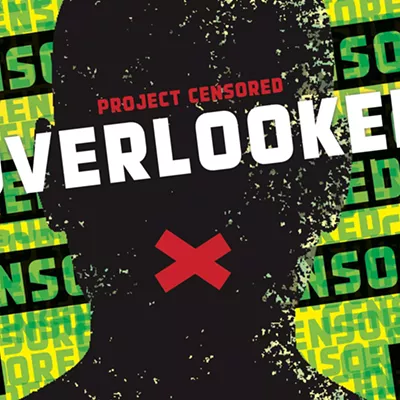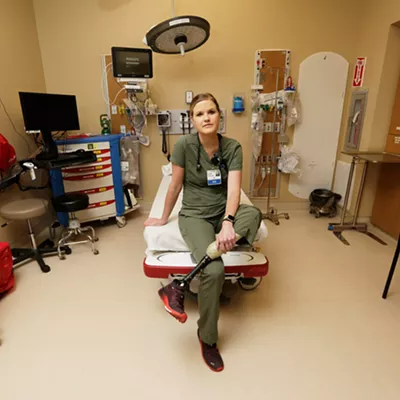
For weeks, Idaho lawmakers have been preparing for this year's legislative session, which convened on Monday, Jan. 6.
The Idaho Legislature's 35 senators and 70 representatives will meet from January until early April. Republicans hold a supermajority in both chambers, with a total of 90 seats.
We spoke with Idaho lawmakers who say their priorities this year include looking at funding school choice, repealing or reforming Medicaid coverage, and lowering taxes.
EDUCATION
During the last legislative session, several school choice bills failed. School choice would allow families to use public education funds for private school, charter school or homeschooling.One method would've offered tax credits to reimburse families with children in private school for education expenses and tuition. Another proposal would've created a tax-free "education savings account," for families to put toward private school tuition, at a cost of potentially $20 million to the state.
One North Idaho face returning to the Idaho Legislature is Sen. Jim Woodward, R-Sagle. Woodward will be vice chair of the Joint Finance-Appropriations Committee, which oversees state revenue and agency budget requests. He is also on the Education Committee.
According to the 2023 Annual Survey of School System Finances by the U.S. Census Bureau, Idaho had the worst per-pupil funding in the country at $10,203. Rural school districts like West Bonner County and Boundary County (within Woodward's district) face some of the tightest budgets and often struggle to pass bonds and levies.
Woodward strongly supports the public education system and would like to move to a fully state-funded system.
"I'm at the point that I'm ready to move the school systems off property tax in any way and just fund from the state level," Woodward says. "That's the goal, is to get the schools funded properly."
Woodward says he opposes the idea of funding private school choice, as he is concerned about accountability and pulling resources from public school districts.
"Whatever proposal they might provide, it's still talking about the use of public taxpayer money, and with public taxpayer money, the first requirement is accountability," Woodward says. "I'm supportive of our public education system; you can see that in my voting record over the years. I think we need to ensure we take care of our constitutional obligation before extending ourselves further with a larger obligation."
Meanwhile, Sen. Ben Toews, R-Coeur d'Alene, would like to see school choice via tax credits. His district covers Kootenai County, which has more than 20 private schools and the second-largest concentration of private school students in the state.
"I hope to see legislation signed into law to expand education freedom through education tax credits," Toews tells the Inlander via email. "These will empower parents to give their children the best opportunity to succeed with an education tailored to their unique needs and interests."
Sen. Melissa Wintrow, D-Boise, says the state needs to fund public education. She's concerned about the potential cost of school choice, pointing to Arizona's school choice program, which costs about $800 million for roughly 83,000 students.
The Idaho State Board of Education has requested $3.3 billion for K-12 spending, but that doesn't include funding private school choice. According to a February 2024 education board report, Idaho has 16,843 private and 312,643 public school students.
Wintrow says a voucher system would especially harm rural public schools, and the voucher system wouldn't necessarily help more families send their students to private school.
"We have seen from national research that in these voucher schemes from other states, what it's showing is that most of the people getting these vouchers are already enrolled in a private or religious school, and they're using the money to supplement their current amount they're paying for private tuition," Wintrow says. "To me, that is not appropriate."
MEDICAID
Idaho Medicaid is a health insurance program for low-income people, children, those with disabilities, and pregnant mothers. In 2018, more than 60% of Idaho voters approved an Idaho Medicaid expansion.
The expansion covers about 145,000 Idaho residents who would otherwise be unable to receive Medicaid coverage because they're above the poverty level but can't afford private coverage. The expanded eligibility covers people who earn up to 138% of the federal poverty level ($35,632 for a household of three).
This fiscal year, which ends in July, Idaho's entire Medicaid program is budgeted to cost more than $4.7 billion. The cost is expected to increase to more than $5 billion next year. The cost of the Medicaid expansion is 90% covered by the federal government.
House Speaker Mike Moyle has indicated he'd like to reform or repeal Medicaid expansion this session.
Wintrow believes the benefits of Medicaid coverage in Idaho outweigh the cost. She says the 24% of Medicaid recipients who have a primary diagnosis of serious mental illness benefit from the expansion. Medicaid coverage reduced the cost of medical charity care and bad medical debt by $103 million from 2019-2021, according to Idaho's Department of Health and Welfare.
"So if we look at repealing or reforming Medicaid, we could be harming the very people we're trying to help," Wintrow says.
Woodward says he was an early opponent of the Medicaid expansion. Still, when Idahoans voted for expansion, he supported their decision and sees no indication that voters want it repealed.
TAXES
A key issue in Idaho every year is taxes and how to limit them.
Toews says continuing to reduce taxes is one of his priorities. Specifically, he says he'd like to "lower my constituents' living costs by eliminating grocery tax and increasing homeowners' exemptions to lower property taxes."
However, Wintrow says that in the past five years, Idaho has cut about $4 billion in taxes, which could have been used to address funding shortfalls in areas such as education. She wants to see tax reform on property and grocery taxes, but not additional income tax rebates that benefit wealthier people.
"My constituents have said very clearly, 'Stop doing income tax rebates,' because it's harming the revenue stream, and it's harming the investment we can make in schools and access to public health," Wintrow says.
Woodward says he would like to see property tax exemptions and grocery sales tax credits updated to reflect inflation and provide adequate relief for vulnerable Idahoans.
OTHER PRIORITIES
Woodward would like to address the crisis of obstetricians leaving Idaho. Bonner General Hospital in Sandpoint no longer offers obstetric services. He'd like to change language in the state's abortion laws to help prioritize a mother's survival and provide protection for doctors, who are afraid to save mothers due to the threat of a felony conviction under the state's abortion ban.
"I'm not decided yet exactly where the language needs to land," Woodward says. "But at the end of the day ... we have a problem because our doctors are leaving."
Toews would like to push family-focused bills, including limiting access to social media for minors and his House Resolution 35, which would create a traditional values month between Mother's Day and Father's Day. That resolution states that "traditional families designed by God" can help solve issues of crime and poverty.
Wintrow would like to reform the coroner system because there are inconsistent standards across Idaho's counties. She says it is a long-term project that she will work on with Rep. Douglas Pickett, R- Oakley, to create standards for the profession. ♦

























